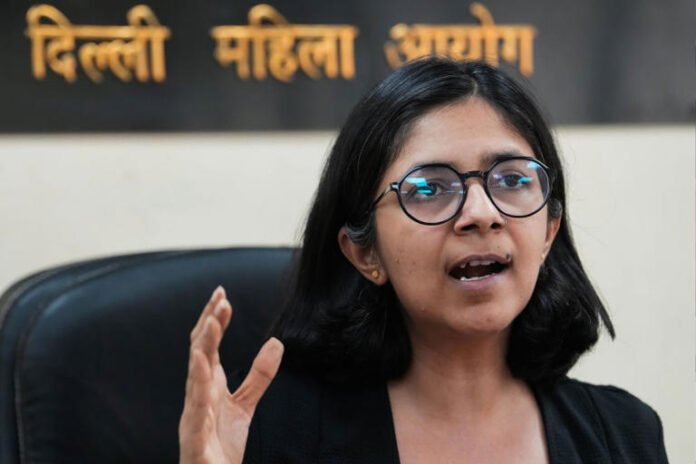Swati Maliwal, the Chairperson of the Delhi Commission for Women (DCW), has issued a scathing reaction to a controversial video that recently surfaced from Delhi Chief Minister Arvind Kejriwal’s residence. Maliwal described the situation as an example of “a political hitman trying to save himself,” intensifying the already volatile political atmosphere in Delhi.
The video in question, which has rapidly gained traction on social media and various news platforms, allegedly shows a private meeting held at Kejriwal’s residence. In the footage, several key figures from the Aam Aadmi Party (AAP) can be seen engaging in what appears to be a discussion about internal party strategies and responses to current political challenges. While the exact content of the video remains partially unclear due to its abrupt ending, its release has sparked a wave of speculation and controversy.
Swati Maliwal, known for her outspoken nature and active role in advocating for women’s rights, did not hold back in her critique. In a series of tweets and public statements, she accused those involved of engaging in unethical practices to protect their political interests. “This video is a glaring example of a political hitman trying to save himself. The lengths to which some leaders will go to maintain their power is both shocking and disgraceful,” Maliwal stated.
Maliwal’s comments have added fuel to an already contentious political climate in Delhi. Her use of the term “political hitman” suggests a belief that there are orchestrated efforts by some political figures to undermine opponents and manipulate situations to their advantage. This rhetoric underscores the deepening divisions and the high stakes of political maneuvers in the capital.
The reaction from the Aam Aadmi Party has been swift. Party spokespersons have dismissed the video as a manipulated attempt to tarnish their image. They argue that the footage is being taken out of context and is part of a broader conspiracy by opposition parties to destabilize the AAP government. “This is a classic example of dirty politics. The video has been selectively edited to create a false narrative. Our party stands united and strong,” said a senior AAP leader.
The opposition parties, however, have seized the opportunity to criticize Kejriwal and his administration. Leaders from the Bharatiya Janata Party (BJP) and Congress have called for a thorough investigation into the video’s origins and content. They argue that the public has a right to know the truth about the discussions and decisions being made behind closed doors by their elected representatives.
Political analysts are divided on the impact of the video and Maliwal’s reaction. Some believe that this incident could damage the credibility of the AAP, particularly if further incriminating details emerge. Others argue that the controversy might eventually blow over without causing significant long-term harm, especially if the AAP can effectively counter the accusations and maintain public support.
Swati Maliwal’s strong reaction also highlights the role of social media and public scrutiny in contemporary politics. In an age where information spreads rapidly and public opinion can shift swiftly, politicians and parties are increasingly vulnerable to the consequences of leaked videos and other digital content.
As the situation unfolds, the key questions remain: who released the video, what was its intended impact, and how will it affect the political landscape in Delhi? The answers to these questions will likely shape the narratives and strategies of all involved parties in the coming weeks.
In addition, Swati Maliwal’s fiery response to the video from Arvind Kejriwal’s residence has injected new energy into Delhi’s political discourse. Describing the incident as an act of “a political hitman trying to save himself,” she has called attention to the high-stakes nature of political maneuvering in the capital. As debates rage on and investigations possibly commence, the unfolding events promise to be closely watched by both political insiders and the public at large, highlighting the complex interplay of power, strategy, and accountability in Indian politics.

